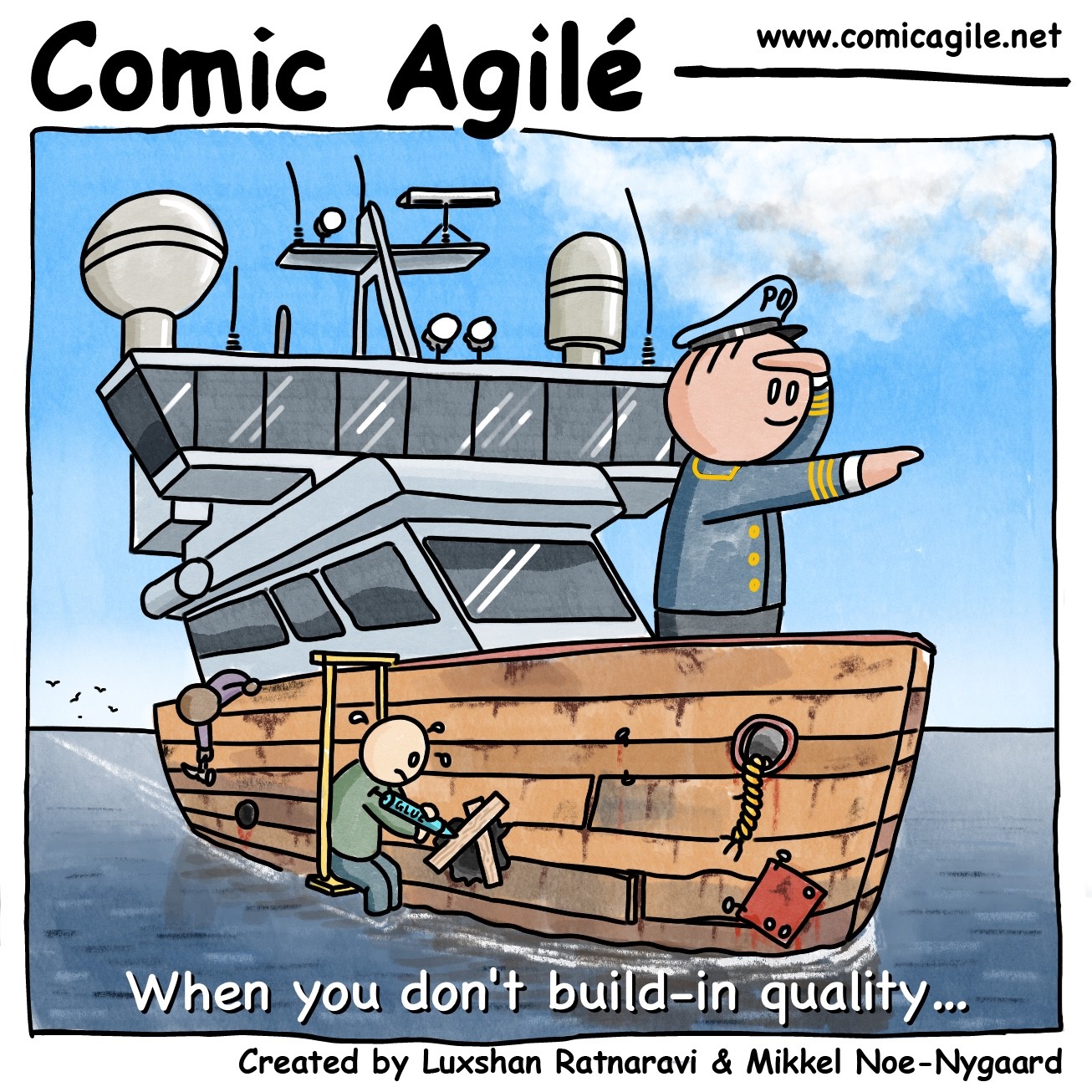
#162 – Building-In Quality If you haven’t managed to build-in technical quality in your product, then, remember to prioritize enablers in your sprints, so you maintain your infrastructure and platforms, and potentially reduce your Technical Debt. The time spent on […]
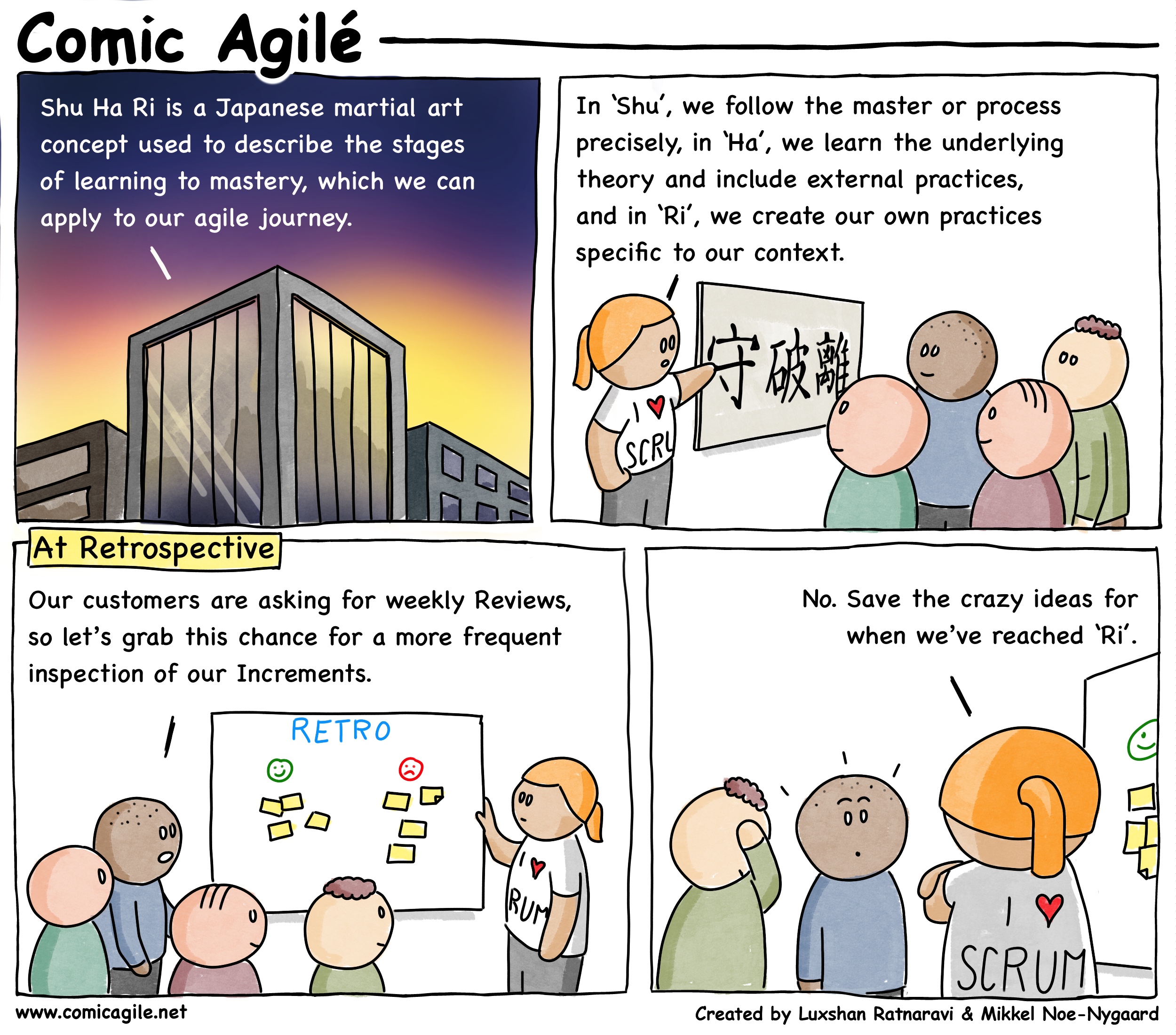
#144 – Shu Ha Ri You don’t have to reach ‘Ri’ before changing your processes–especially not if you’ve identified an improvement that’ll increase empiricism. In many teams, the format of the Sprint Retrospective is often modified, but you could make […]

#141 – Tasks for a Specific Developer Managers must accept that Scrum teams are self-organizing. Therefore, if the PO thinks the request is to become a PBI and ordered at the top of the Product Backlog, to begin with, the […]

#143 – When Asked to Coach In Strip 135, we suggest that we, as Agile Coaches, should start focusing on the relevant disciplines not directly related to Scrum in order to truly improve organizations. The potentially most impactful and valuable […]
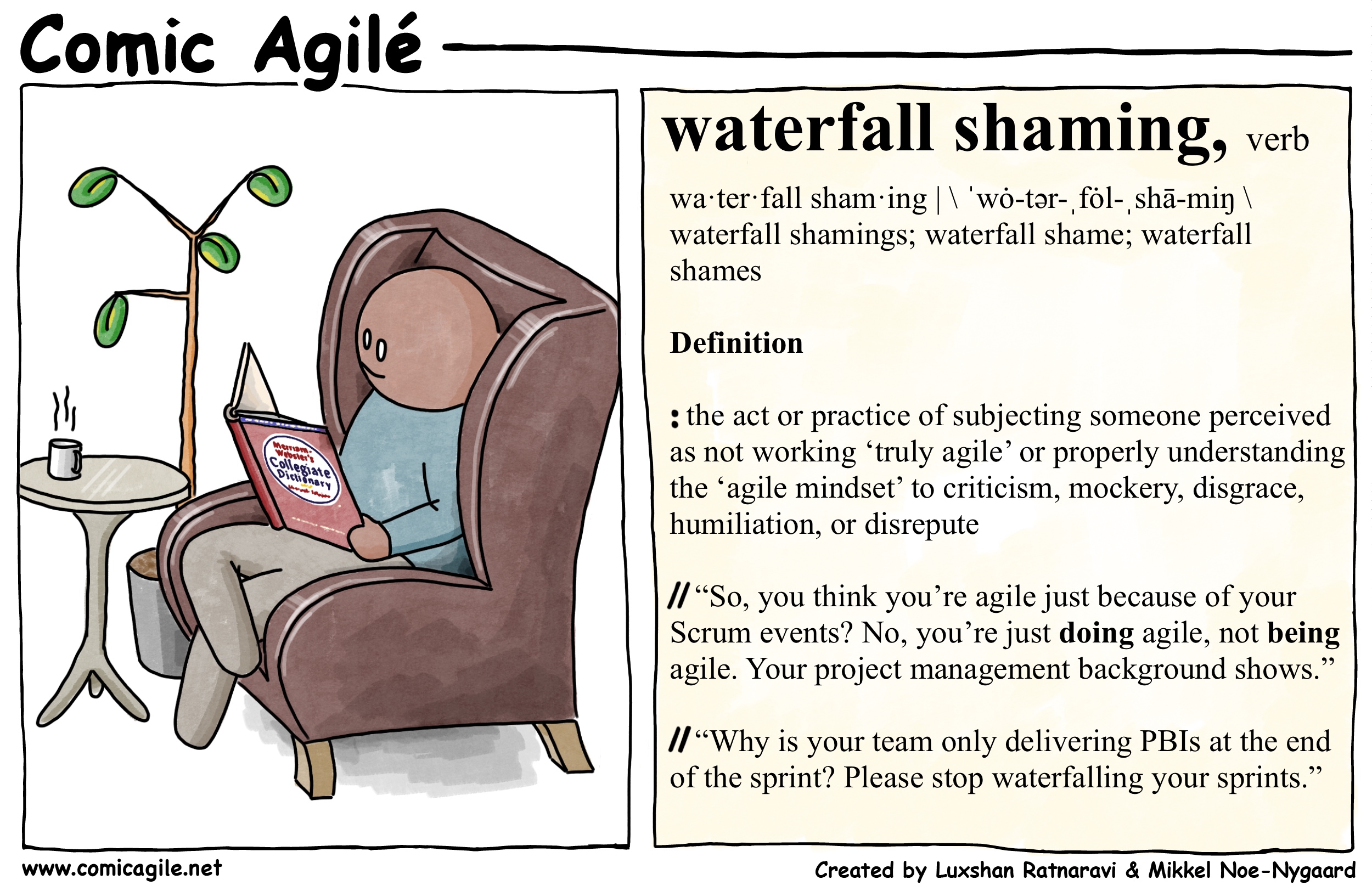
#77 – Waterfall Shaming Instead of bullying people, help them become even better at this agile thingy. If they want your help, that is.
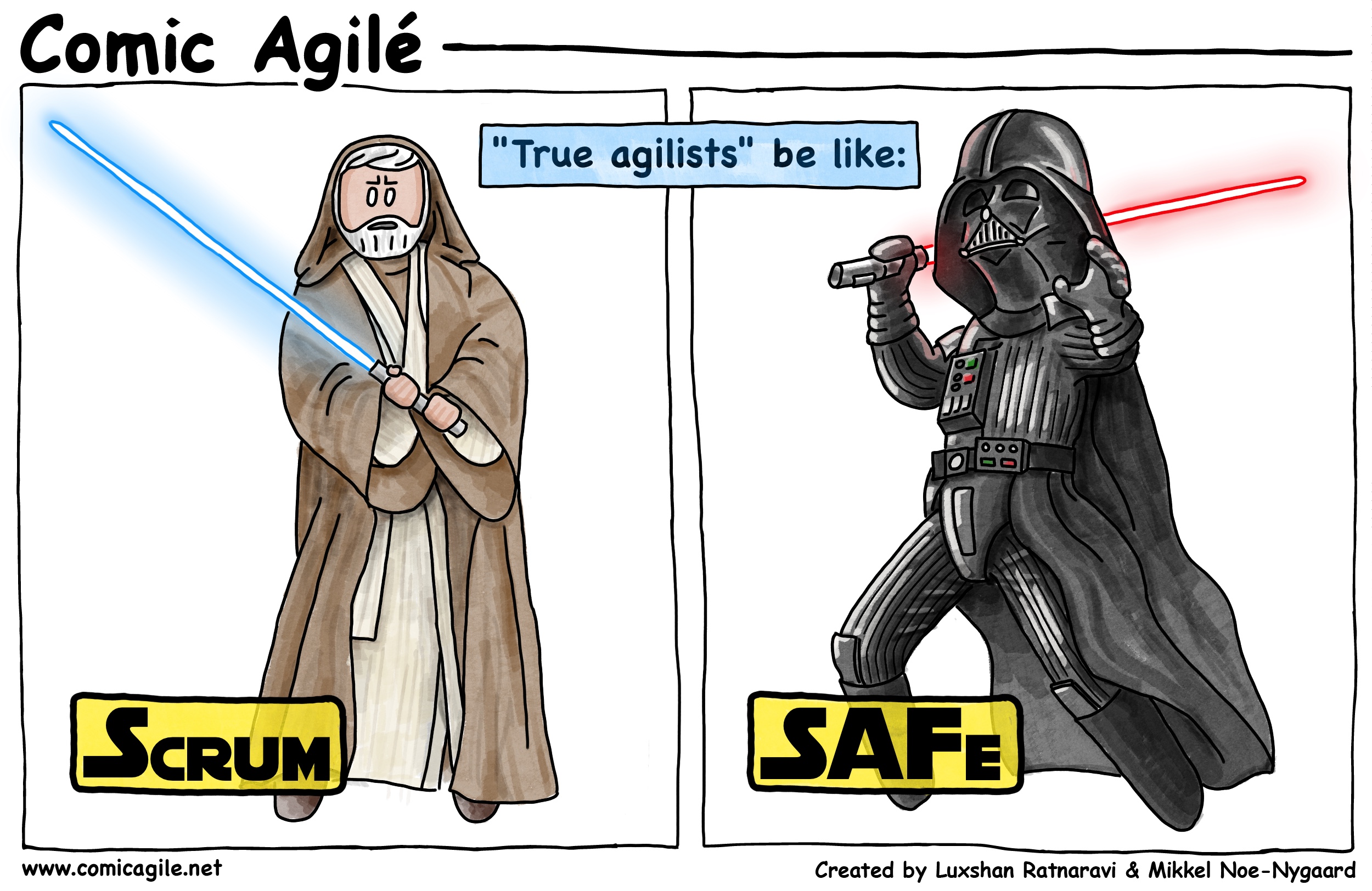
#89 – The Force SAFe and Scrum are not opposite forces; in SAFe, Scrum(XP) is the way of working in the teams, along with Kanban, and SAFe then adds some structure on top of the teams. What we need is […]
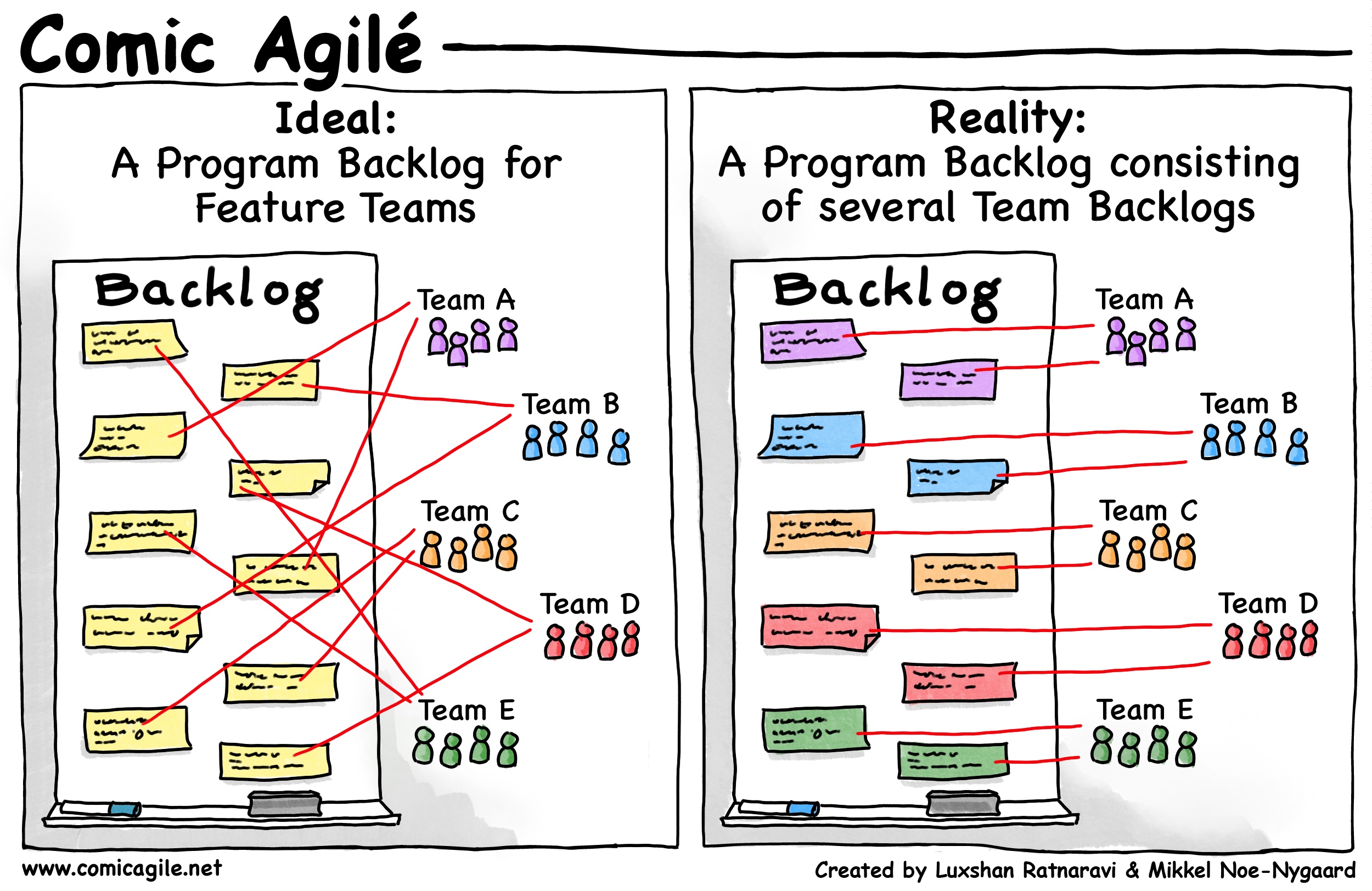
#73 – The Program Backlog If teams cannot really collaborate on features, the Program Backlog typically ends up being a collection of individual Team Backlogs. If this happens, there’s really no need to have it nor plan collectively. So, when […]
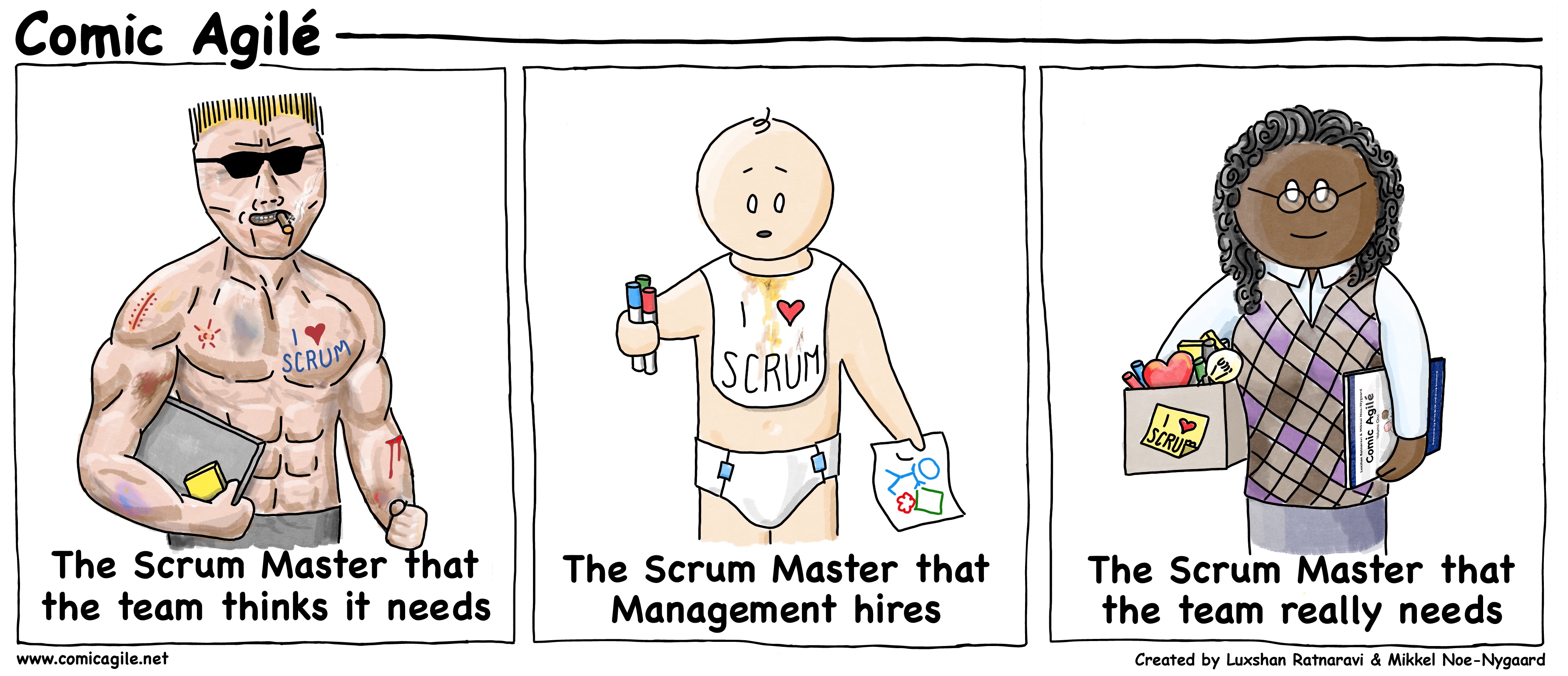
#61 – The Scrum Master We Need What characterizes an awesome Scrum Master? It’s not so much about having battle scars, but about meeting the team and organization where they are. Experience always helps, but it’s useless without a positive […]
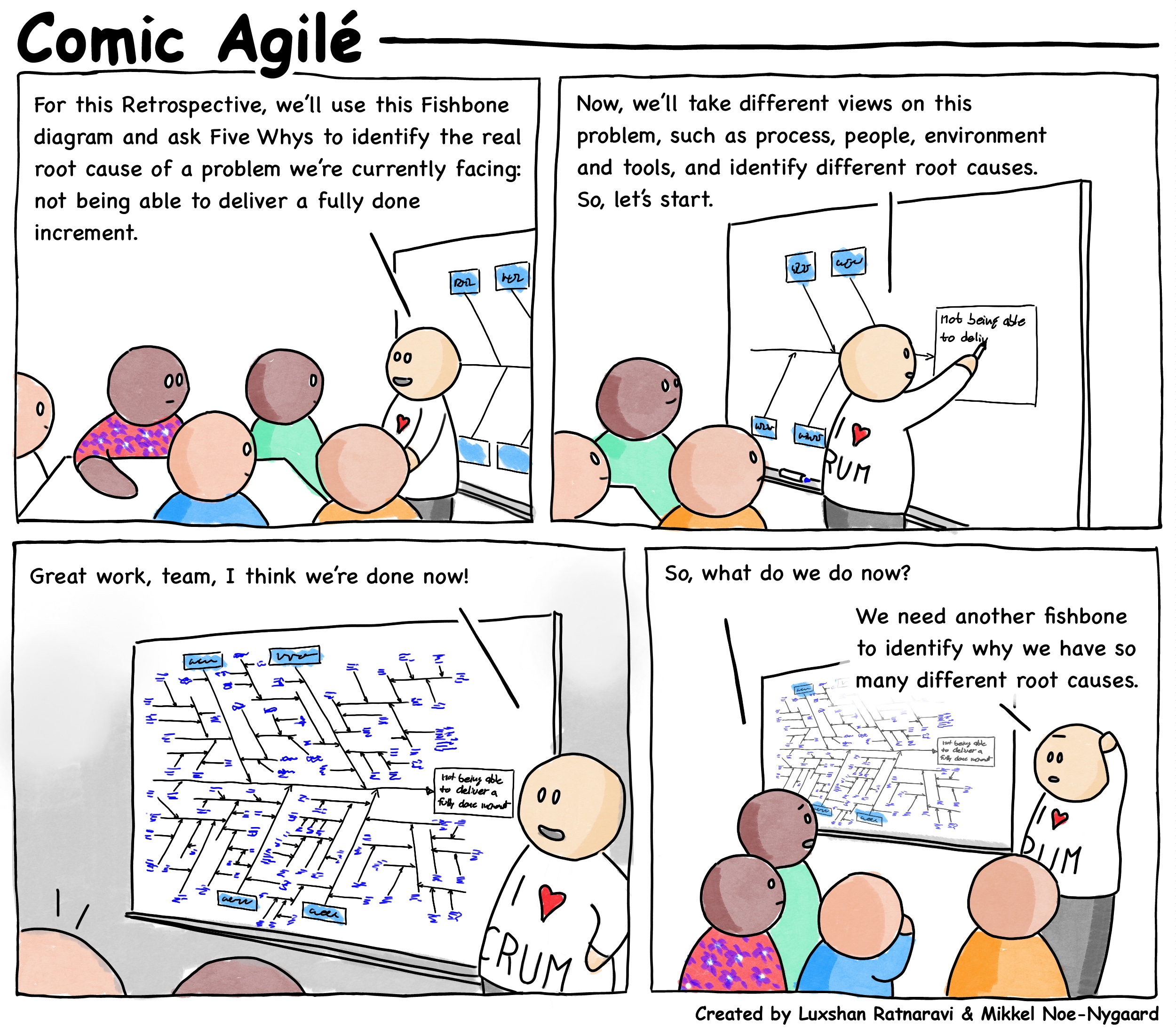
#37 – Root-Cause Analysis Authors comment: When problems, challenges or opportunities for improvement appear at, e.g., Retrospectives, instead of jumping directly to solving it, it is often beneficial to identify the possible root causes for it. We do this because […]









Recent Comments